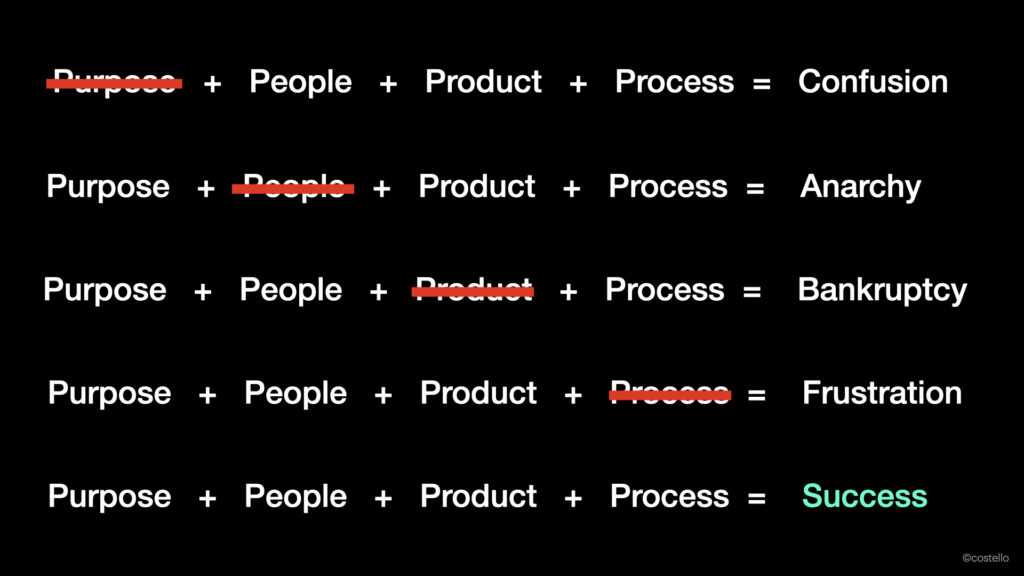This ‘no BS checklist’ will help founders succinctly delineate the critical elements necessary for a business to achieve success: Purpose, People, Product, and Process.
It asserts that missing any one of these components can lead to detrimental outcomes—confusion, anarchy, bankruptcy, or worse, frustration.
It underscores the necessity of a balanced approach, with each component being integral to forging a cohesive and productive business structure. Founders can use this checklist as a quick strategic tool to align all fundamental aspects of their ventures, fostering enduring growth and success.
It compels you to identify any pieces of the puzzle that may be missing. Or, better still, identify weaknesses in any given pillar before pitch day.

Purpose: Every business needs a clear reason for existing – beyond making money. Purpose drives everything from your strategy to how your team executes on a daily basis. Without it, there’s no focus, leading to confusion and wasted energy.
People: A great idea means nothing without the right people to bring it to life. You need leaders who can guide, teams that are motivated, and a culture that supports innovation. Hiring the right people and fostering the right culture from the start is key.
Product: Your product must solve a real problem for your customers, and it needs to be adaptable. No amount of marketing will save a product that doesn’t meet market needs.
Process: Scalable, repeatable processes are what separate chaotic startups from businesses that can grow sustainably. Processes allow you to maintain quality and efficiency even as you expand.
Examples for each of these in action:
WeWork: A case of a company with a questionble purpose, growing at break-neck speed with no clear mission beyond expansion. It’s purpose swiftly collapsed under the weight of it’s own insincerity resulting in financial collapse.
OpenAI: Faced challenges when its people struggled to balance fast growth with ethical decision-making, causing internal discord.
Slack: A company that nailed product-market fit by evolving from a gaming company tool to the communication platform used by millions.
Uber: Scaled globally at an unprecedented rate because it had operational processes in place to replicate its success across cities while minimising inefficiency.